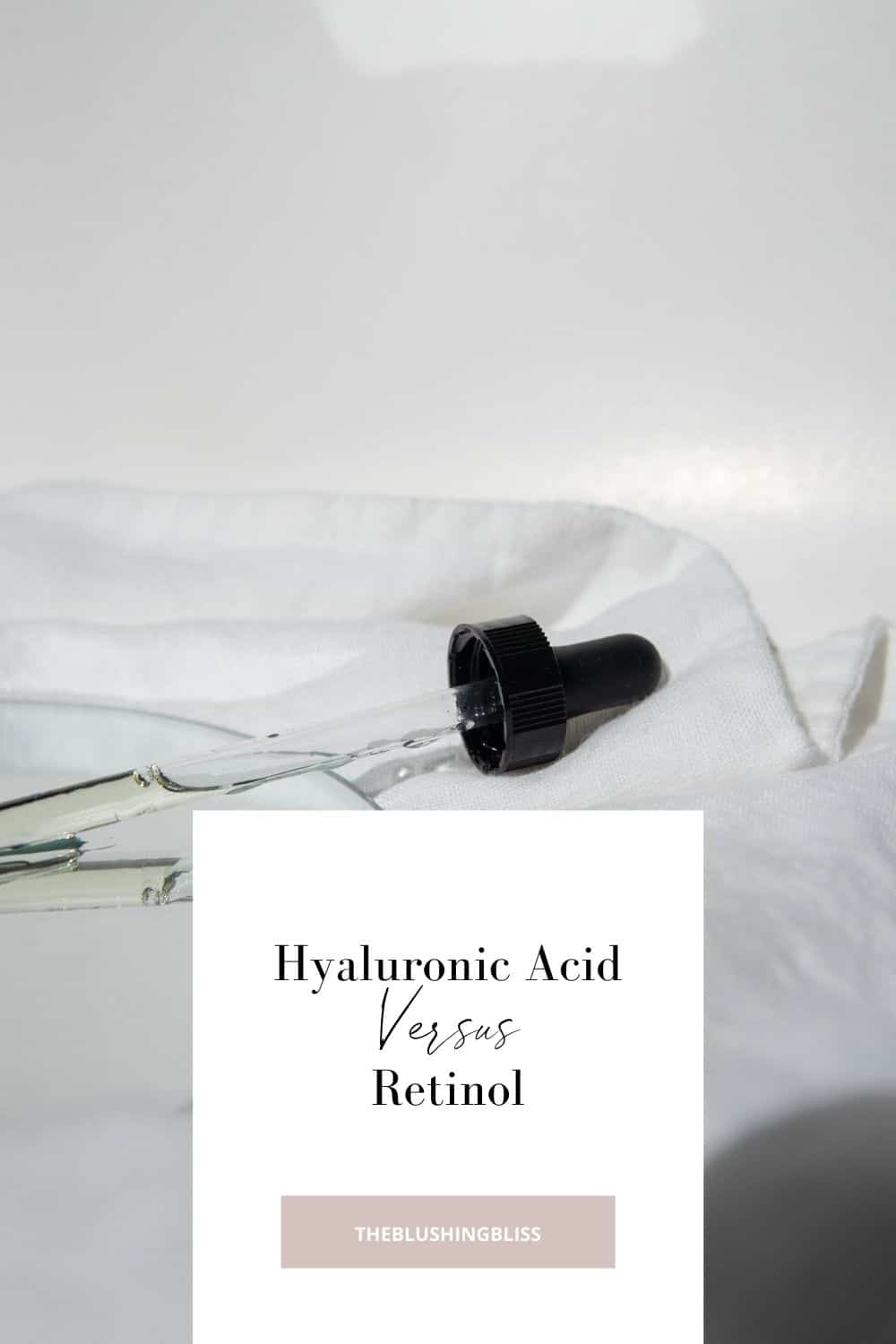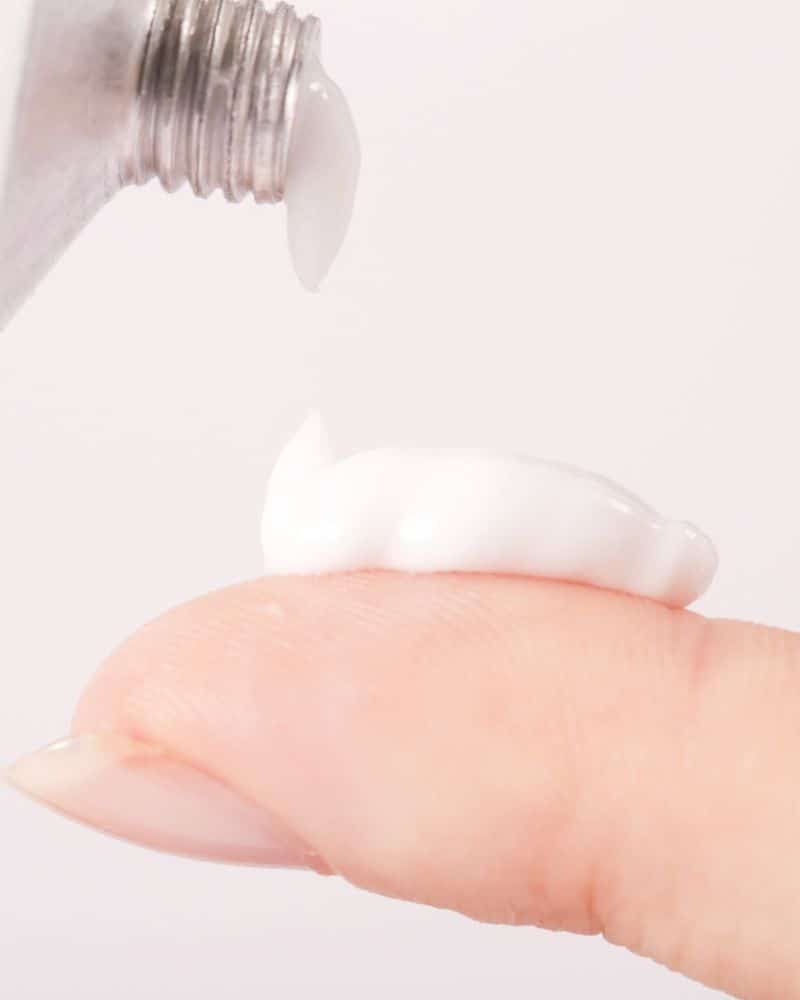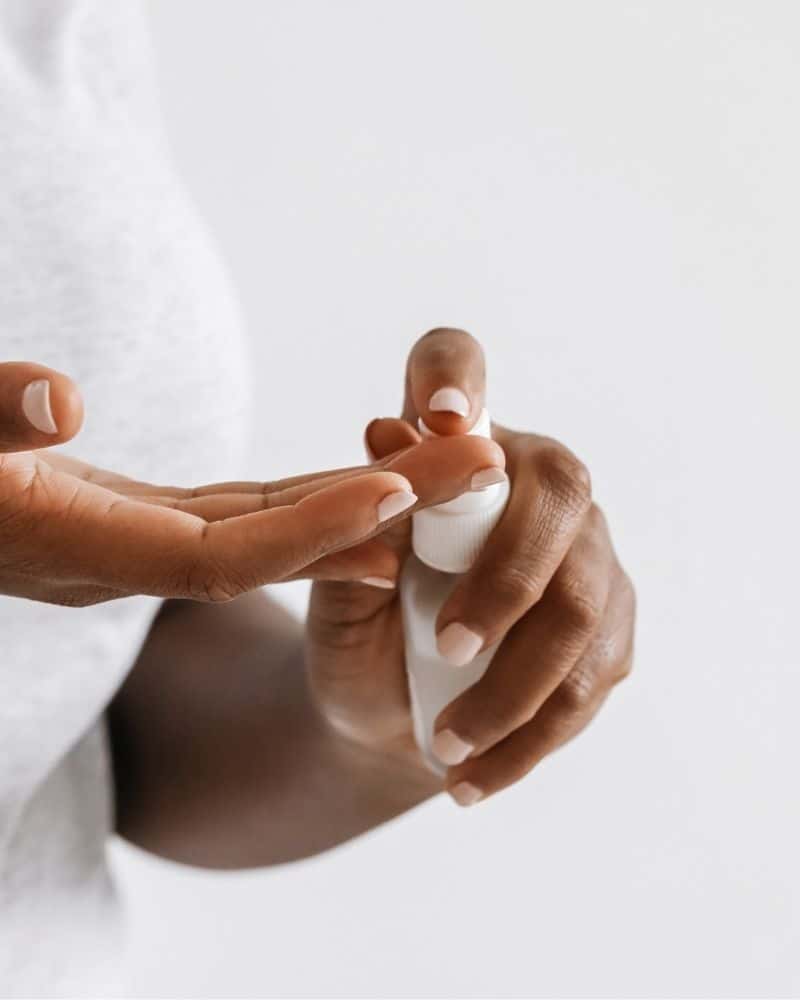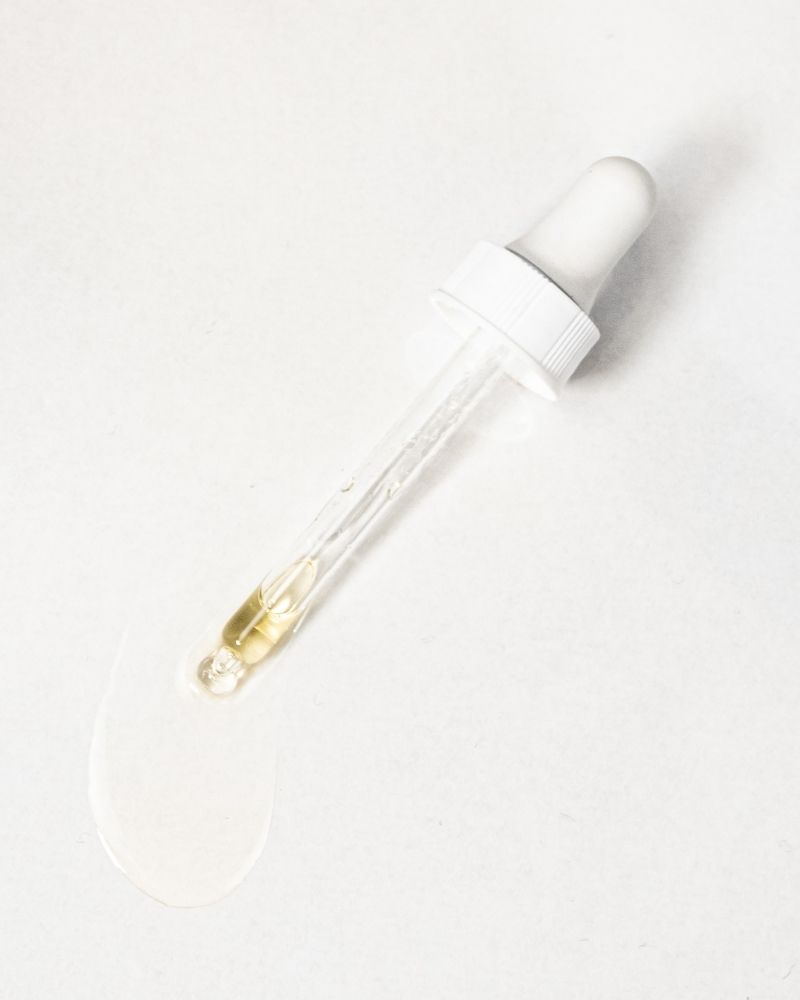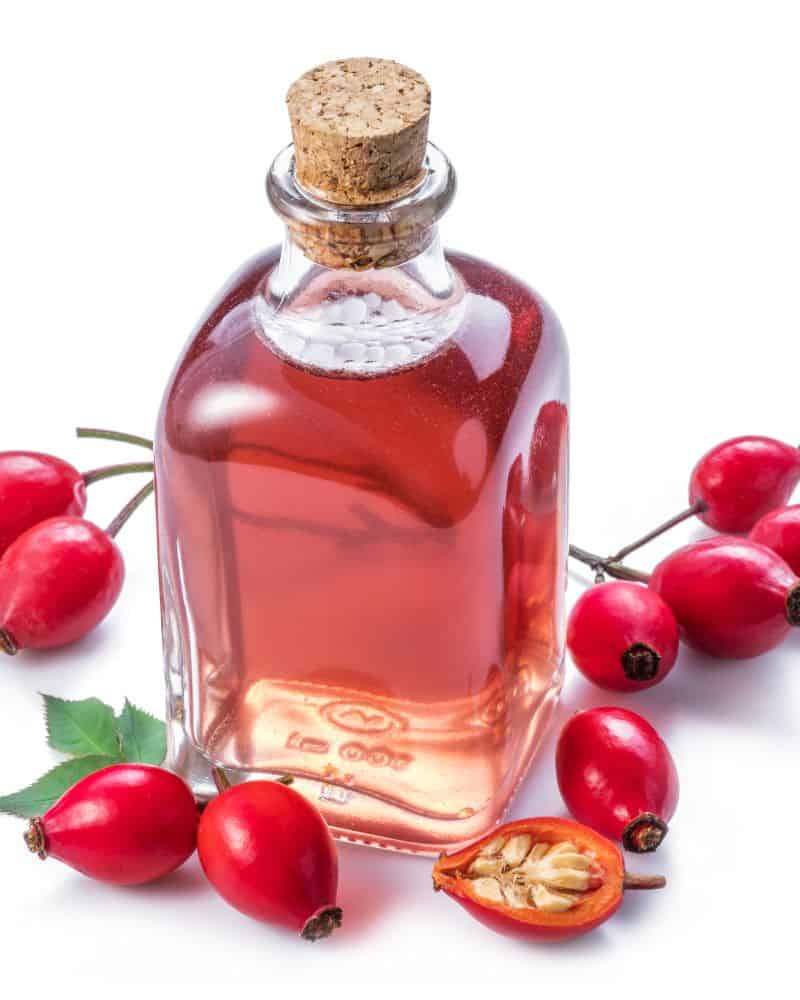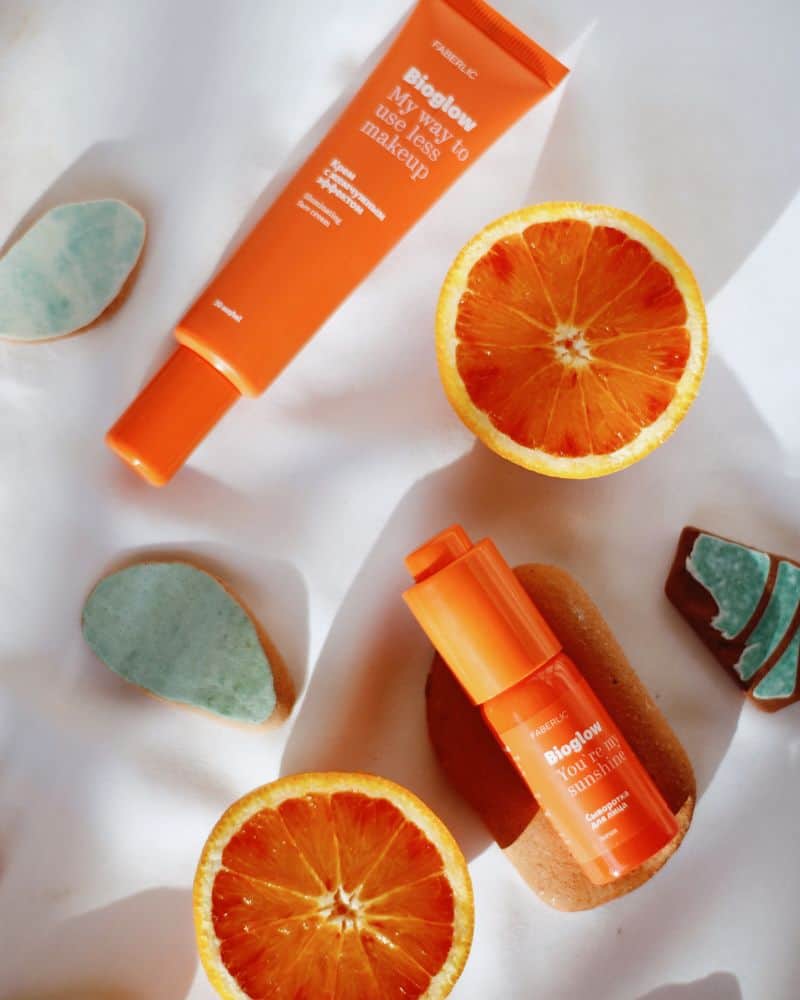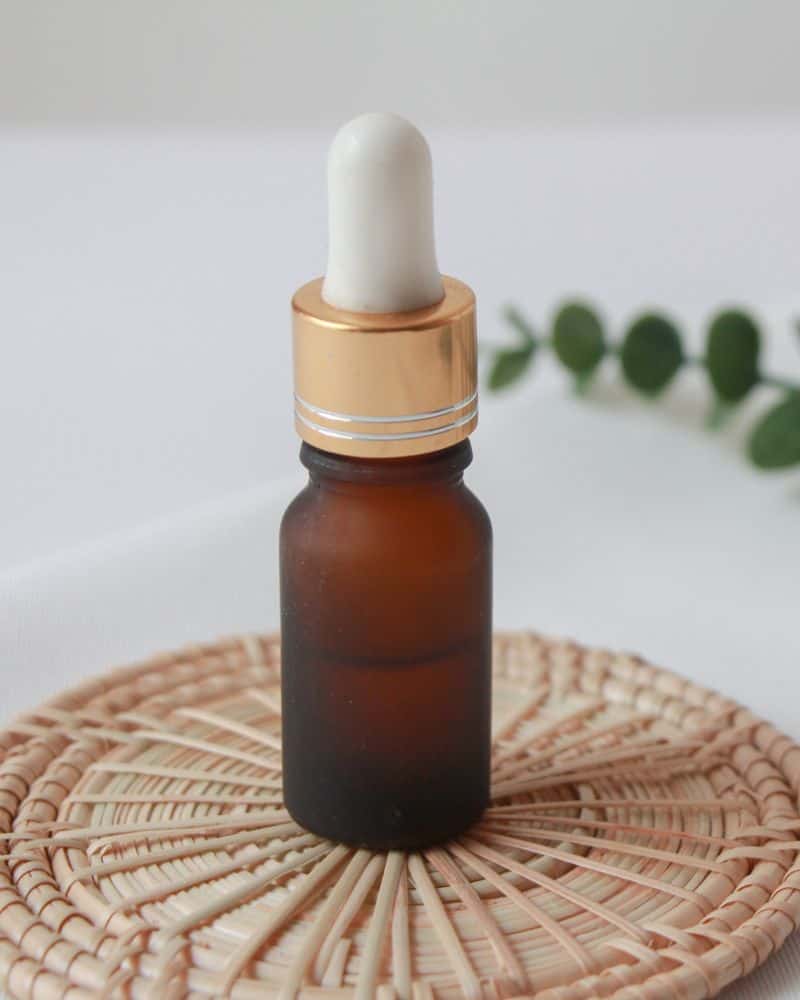Retinol Vs Hyaluronic Acid: What’s The Difference?
This post may contain affiliate links.
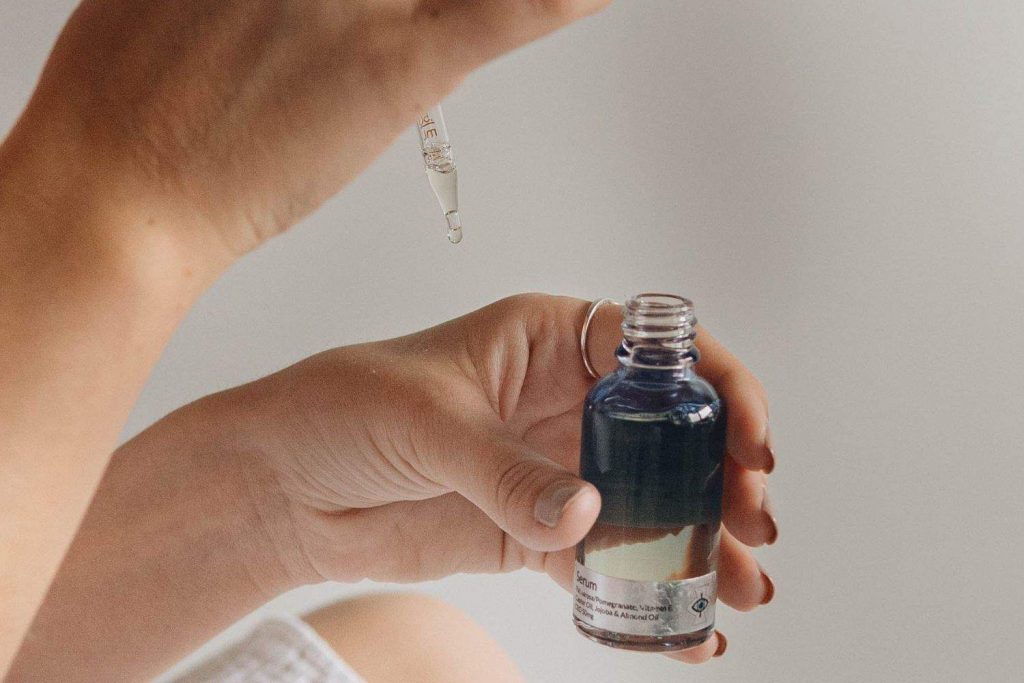
What’s The Difference Between Retinol And Hyaluronic Acid?
You’ve probably heard of hyaluronic acid and retinol as being two of the best skincare ingredients, no matter your skin type or skin concerns. But what do they actually do? And what the difference is between retinol and hyaluronic acid? Both are popular anti-aging ingredients, but they work in very different ways. In this post, we’ll breakdown all the similarities and differences between retinol vs hyaluronic acid so you can decide which one is better for your skin.
What Is Hyaluronic Acid?
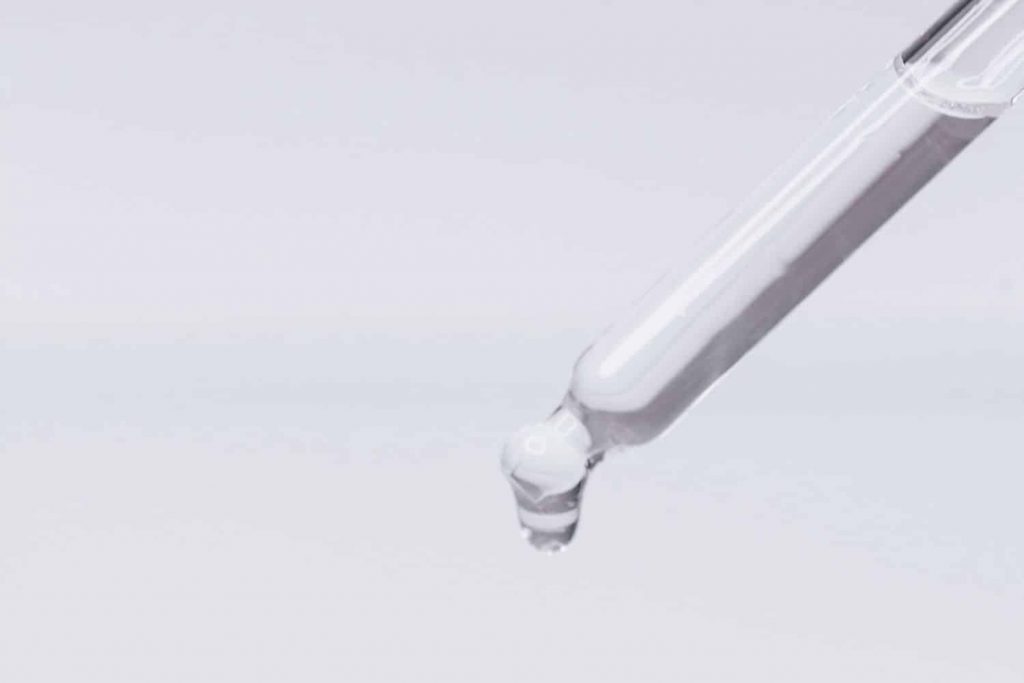
Although it sounds like hyaluronic acid is some sort of exfoliating ingredient and may sound a little scary to those new to skincare, hyaluronic acid is a sugar molecule that is naturally found in our bodies, mainly the skin, eyes and joints. It helps to lubricate our eyes and joints and keep our skin barrier healthy by keeping it hydrated. It belongs to a group of ingredients called humectants, which are used to keep skin hydrated.
As we age, hyaluronic acid production slows which can lead to dryness, dehydration, loss of elasticity and more. Hyaluronic acid is important for the health of our skin and bodies, so supplementing a hyaluronic acid serum can help keep your skin healthy and prevent aging.
Hyaluronic acid is an incredibly hydrating ingredient because it can hold up to 1,000x times its weight in water. It grabs on to all those water molecules and traps them in the skin to keep skin hydrated and plump. It also helps to keep all that water from evaporating and leaving skin dehydrated and dry.
Because of its ability to hold so much water, hyaluronic acid is a very popular ingredient in skincare products. If you look at any of your skincare products, you’ll likely find it in a few of them. Hyaluronic acid is not only a great ingredient on its own, but it also plays well with other actives (AHA, BHA, retinol, vitamin c, niacinamide).
Benefits Of Hyaluronic Acid
Aside from keeping skin hydrated, hyaluronic acid has many other benefits. If you weren’t convinced you need to be using HA in your skincare routine, I know you will be now.
- Hydration – think of hyaluronic acid as a big drink of water for your skin: refreshing and essential for healthy skin
- Aids In Wound Healing – hyaluronic acid can help with tissue repair and speed up wound healing. Not only can it help heal a cut faster, but it can also help heal acne and breakouts quicker
- Smooths Texture – HA helps your skin shed dead skin cells more easily, so they don’t build up on your skin and cause rough texture
- Plumping – HA will instantly plump your skin with moisture and reduce the appearance of fine lines, wrinkles and pore size
- Anti-aging – not only does HA plump the skin to reduce fine lines and wrinkles, it’s also involved in collagen production, which is essential for more youthful and resilient skin
- Anti-inflammatory – Hyaluronic acid is also shown to have anti-inflammatory properties to help with wound healing (a cut or even acne)
- Tightens Skin – Hyaluronic acid will instantly tighten skin as it plumps your skin with moisture
- Acne – HA can indirectly help treat and prevent acne because of its anti-inflammatory properties
- Strengthens Skin’s Protective Barrier – HA keeps the skin barrier strong so it can defend against pathogens and other environmental aggressors that can damage skin
As we age, the levels of hyaluronic acid in our skin decrease, which can leave our skin looking less than stellar. Aging, as well as sun exposure and environmental damage, can cause the amount of hyaluronic acid in our skin to decrease, which results in duller looking skin that is less plump. Not only can this leave us looking old before our time, but it also allows wrinkles and fine lines to form more easily.
Why Is Hyaluronic Acid Important For Our Skin?
Low HA levels in the skin can also cause dryness, which in turn, can affect the way our skin cells shed. Dry skin cannot shed skin cells as effectively, so oftentimes you’ll have a build up of dead skin cells which can lead to rough skin texture and acne.
Why You Should Use Hyaluronic Acid
If you still aren’t sold on the wonders of hyaluronic acid, here’s a few other reasons why you need to get this ingredient in your skincare routine asap:
- Bouncier, dewier, glowier skin – need I say more? Within a few uses, you’ll be able to ditch that highlighter because you have that natural glow
- Hyaluronic acid is safe for everyone to use. And I mean everyone. No matter the age, skin type or concern.
- Since HA is found naturally in the skin, you won’t need to worry about breakouts or reactions from this ingredient
- Hyaluronic acid pairs well with any other skincare ingredient, so there’s no confusion about what you can or can’t use along with it
Just get hyaluronic acid into your skincare routine, pronto, k?
Side Effects Of Hyaluronic Acid
Luckily, hyaluronic acid really doesn’t have any side effects! Because it’s naturally produced by our bodies, there is a very low risk of any kind of irritation or reaction from hyaluronic acid serums.
The only thing you need to be aware of is climate. If you live in a dry climate, you might find that hyaluronic acid can actually dry out your skin if you’re not careful.Since hyaluronic acid is a humectant, it will draw moisture from wherever is can.
And since dry climates do not have a lot of moisture in the air, hyaluronic acid will draw the moisture from your skin which can leave it dehydrated and dry. So to combat this, you always need to apply a moisturizer on top of hyaluronic acid to keep the moisture from escaping into the environment.
How To Use Hyaluronic Acid
Hyaluronic acid is simple to use and add into your skincare routine.
- Cleanse
- Dampen skin with water, mist or toner
- Apply hyaluronic acid serum
- Moisturize
If you use other skincare products like serums, toners, etc. you can easily layer them with your hyaluronic acid serum. Just remember to apply in order of thinnest to thickest.
Hyaluronic acid is best used on damp skin that way it can grab all that water and plump your skin full of moisture! You’ll also want to be sure to moisturize afterwards to lock all that hydration in.
What Is Retinol?
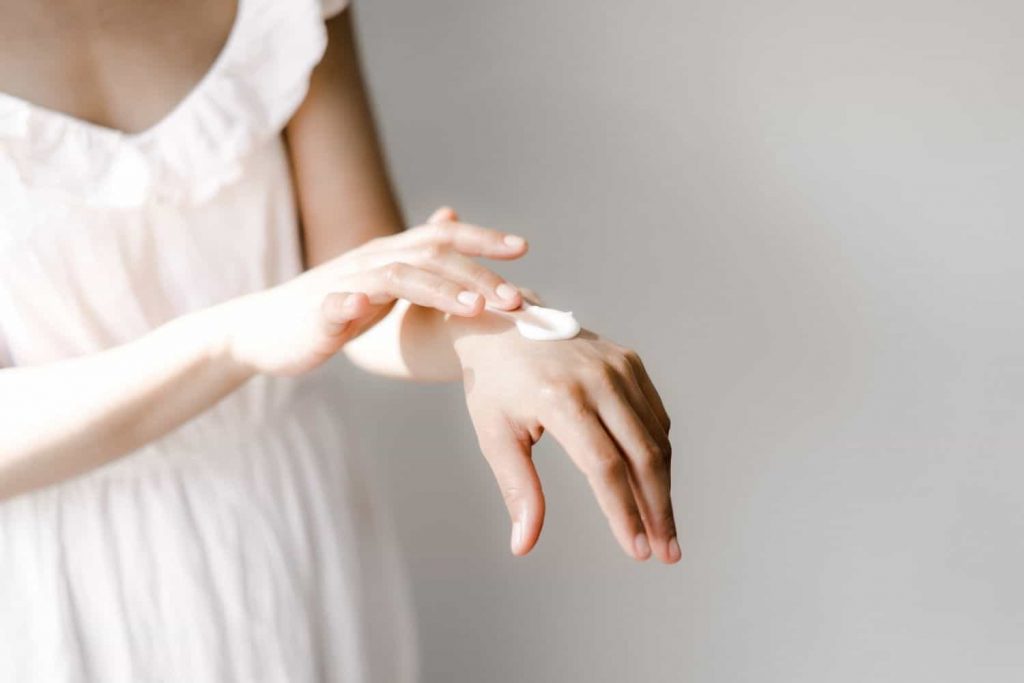
Retinol is a form of vitamin A that’s found in many skincare products. Most dermatologists agree that retinol is one of the best ingredients you can use to take care of your skin no matter what your skin type or skin concerns are. Just like hyaluronic acid, retinol has a ton of amazing skin benefits.
Retinol is a type of retinoid, which are a family of Vitamin A compounds. Retinol is the OTC form of vitamin A, while stronger retinoids (like tretinoin or retin a) require a prescription.
Retinols increase skin cell turnover and boost collagen production. These two benefits can help with an array of skincare issues and concerns like acne, wrinkles, dull skin and so much more.
Related post: Granactive Retinoid Vs Retinol – Which Is Better?
Benefits Of Retinol
Like hyaluronic acid, retinol has some incredible benefits for the skin. Many people call this ingredient magic in a bottle and here’s why.
- Treats & prevents acne – retinol helps to treat active acne and speed up healing time, but also prevent future breakouts by unclogging pores
- Anti-aging – Retinols are the gold standard for anti-aging because its ability to plump skin, diminish fine lines and wrinkles and stimulate collagen and elastin production
- Fades hyperpigmentation – From acne scars, melasma, sun spots or any other kind of pigmentation issue, retinol is the quickest way to fade it because of its ability to dramatically speed up cell turover
- Acne Scarring – Indented acne scars, like boxcar or icepick scars require some seriously powerful treatments. Retinol is a great treatment that helps to stimulate new collagen to fill in those scars
- Improves texture – Retinol can smooth out any kind of textural issues like closed comedones, dead skin cell buildup and more
- Improves skin tone – Retinol helps to dramatically brighten and even out skin tone for a more radiant and healthy appearance
- Reduces pore size – Retinol helps to unclog pores and gets rid of all the gunk inside that stretches them out, making them appear smaller and less noticeable
- Protects skin – Retinol thickens the epidermis which helps to protect skin against environmental aggressors that can cause skin damage and aging
Why Is Retinol Important For Our Skin?
Dermatologists recommend that everyone should include vitamin A into their skincare routine at some point, whether its in your younger days for acne or when you’re a bit older and focused on anti-aging. Although its two major benefits are for acne and anti-aging, retinol is great for general skin health because it helps to regulate skin cell turnover.
As mentioned above, as we get older and because of other environmental factors, skin cell turnover can slow down and lead to a build up of them on the surface of our skin. This can cause a lot of issues like rough texture, dull skin, acne and older looking skin. Retinol takes care of this issue by increasing cell turnover so they don’t stay trapped on your skin.
Additionally, as we age collagen production slows, which is a big part in why our skin ages. Retinol stimulates collagen production for healthier more youthful looking skin.
Why You Should Use Retinol
Retinols are perfect for everyone. No matter what your age, skin type or concern, retinol can help you get more beautiful skin. If you’re looking to dramatically transform your skin, retinol is the way to go.
- Plumper, Glowing Skin – retinol works to plump skin by increasing collagen production and gives skin a gorgeous glow from the fresh new skin cells
- Retinol can be used by anyone, no matter your skin concerns. Pores? Gone. Acne? See ya later. Aging? Who is she? There’a retinol product out there for everyone – from tough and tolerant skin to reactive and sensitive
- Accessible – whether you go with a gentler, OTC version or wanting the strength of a prescription-only, there are easy ways to get retinol into your routine with teledermatology and tons of drugstore retinol options
Related post: Can Retinol Cream Expire?
Side Effects Of Retinol
The side effects between hyaluronic acid vs retinol are quite different! Unlike hyaluronic acid, retinol can come with some not-so-nice side effects if you don’t use it properly.
- Dryness/Flaking – this is the most common side effect of retinol. Unfortunately it can cause some pretty serious dryness and flaky skin, particularly in the beginning. This is why it’s important to use a good moisturizer with retinol and don’t use it too often.
- Irritation – retinol can also cause some serious irritation including redness, itching and burning. If it happens, stop using the retinol for a few days and make sure to keep your skin moisturized
- Purging – ah, the dreaded retinol purge! As retinol starts working, it’s getting rid of all the impurities in your pores, which can lead to an increase in breakouts for a short period
- Sun sensitivity – retinol can also make you more sensitive to the sun, which means you absolutely have to be careful about sun exposure and diligently wear sunscreen while using retinol.
How To Use Retinol
There are a few rules to keep in mind when using retinol which will help to decrease any side effects and make sure the initial period goes smoothly.
Retinol should only be used at night. Retinol is degraded by sunlight, which means if you use it during the day and are exposed to the sun, the retinol will become ineffective and not do what it’s supposed to do.
- Cleanse
- Wait 20-30 minutes
- Apply retinol
- Wait 20-30 minutes
- Moisturize
If you use any other skincare products like toners or serums, simply apply them in order of thinnest to thickest. So if you use a watery toner, apply that before your retinol serum or cream.
Retinol Vs Hyaluronic Acid: Which Is Best?
Is retinol or hyaluronic acid better? It totally depends on your skin and skin concerns!
Is there a difference between retinol and hyaluronic acid? While you’ve probably heard a ton about these two ingredients and may think they do the same thing, there are a ton of differences between these two ingredients!
Retinol is an exfoliant which speeds up skin cell turnover, which can help with acne, acne scars, signs of aging and more.
Hyaluronic acid is a humectant which draws moisture into the skin. This helps to keep skin hydrated, strengthen the skin barrier and plump skin.
Now which one should you use: retinol or hyaluronic acid? It all comes down to what you are wanting to get out of the product. If you’re looking for more hydration and barrier strengthening, then hyaluronic acid will be the best pick. Or if you’re wanting to tackle acne, anti-aging or pigmentation, retinol is the product for you.
So which is best retinol or hyaluronic acid for your skin?
- Hyaluronic acid is better for those looking to increase hydration, lightly hydrate oily skin, strengthen skin’s barrier and get mild anti-aging and anti-acne benefits
- Retinol is best for those who are wanting a powerful anti-aging and anti-acne ingredient to tackle a wide variety of skin concerns (sun spots, hyperpigmentation, rough skin texture, etc)
All skin types can benefit from hyaluronic acid and retinol as they both help keep skin healthy and functioning properly.
And if you’re still unsure, keep on reading for a little more guidance on retinol vs hyaluronic acid for specific skin concerns.
Related post: Is Vitamin C Better Than Alpha Arbutin?
Retinol Vs Hyaluronic Acid For Acne
Retinol is the best choice for acne because retinol helps to speed up skin cell turnover which can help reduce acne, clogged pores and blackheads.
While hyaluronic acid can indirectly help treat acne, prescription retinoids like tretinoin or retin-a are FDA approved to treat acne. So OTC retinols are weaker forms of these prescriptions and can help treat and prevent acne just as well.
Retinol Vs Hyaluronic Acid For Collagen Production
If your goal is to increase collagen production, both hyaluronic acid and retinol are essential ingredients. However, if you only pick one, retinol will be able to stimulate more collagen production than hyaluronic acid.
However, if you want maximum collagen production both retinol and hyaluronic acid are ingredients that play well together and stimulate collagen production and help to keep skin healthy and glowing.
Retinol Vs Hyaluronic Acid For Wrinkles
Is retinol or hyaluronic acid best for wrinkles? Whether you’re wanting to reduce fine lines and wrinkles, or prevent them from appearing in the first place, both hyaluronic acid and retinol will help treat and prevent fine lines and wrinkles. HA will diminish them more temporarily by plumping the skin, whereas retinol will help actually get rid of them for good.
Retinol Vs Hyaluronic Acid For Stretch Marks
When it comes to retinol vs hyaluronic acid, is one better than the other for stretch marks? To get rid of stretch marks, you need to stimulate collagen production, so like mentioned above, it’s best to use both retinol and hyaluronic acid for the best results.
Retinol Vs Hyaluronic Acid For Hyperpigmentation & Acne Scars
Whether you’re wanting to get rid of acne scars, sun spots or other scarring, retinol will work best to fade any discolorations on your skin.
Hyaluronic acid can help to reduce inflammation associated with fresh acne scars and reduce redness. HA can also stimulate collagen production but this will only be beneficial for indented acne scars like icepick or boxcar scarring.
For hyperpigmentation, retinol will be the best bet.
Retinol Vs Hyaluronic Acid For Dark Circles
Retinol is the winner here. Retinol can help to stimulate collagen production which can help to brighten dark circles by thickening the skin under the eyes so that your eyes appear brighter. Retinol can also speed up cell turnover which can brighten dark circles by fading hyperpigmentation or dark skin under the eyes.
Hyaluronic acid doesn’t do much for darkness under the eyes. It does have a plumping effect that may help to diminish dark circles, but this is temporary.
Can You Use Retinol And Hyaluronic Acid Together?
Yes, absolutely – retinol and hyaluronic acid work perfectly together and make a great combo that can absolutely transform your skin. In fact, retinol and hyaluronic acid together make one of the best combinations for acne, aging and general skin health.
Retinol boosts collagen production to give you a powerful anti-aging and acne treatment while hyaluronic acid helps with hydration and keeping skin’s barrier strong.
Retinol is best used only at night because 1. you should only use it once a day and 2. it degrades in the sunlight (making it ineffective). Hyaluronic acid can be used morning or night and its best used 2x day.
Bottom line: using both hyaluronic acid and retinol together will dramatically improve skin texture, lines and wrinkles, acne, skin tone and hyperpigmentation. If you can only use one, retinol is the better choice as it will help with more skin concerns. But using both is ideal!
How To Use Retinol And Hyaluronic Acid Together
So if you’re wanting to use retinol and hyaluronic acid together, you might be wondering if you should use retinol or hyaluronic acid first.
It all comes down to the products you are using.
When layering skincare, always go for the thinnest to thickest rule. This means the thinner product will be applied first, followed by the next thinnest, etc.
For example, if you’re using a hyaluronic acid serum and a retinol cream, you would use the hyaluronic acid serum first, followed by the retinol.
Or if you’re using a hyaluronic acid moisturizer and a retinol serum, you would use the retinol first and then the hyaluronic acid.
But what if you have a hyaluronic acid serum vs retinol serum that are both similar in consistency? You can use either one first without any issues.
Hyaluronic Acid Vs Retinol FAQ’s
Do I need both retinol and hyaluronic acid?
While you don’t strictly need both retinol and hyaluronic acid, using both together will give you the best results. Retinol helps to stimulate collagen production and speed up cell turnover, while hyaluronic acid helps to plump and hydrate the skin. Together, they help to treat and prevent fine lines, stimulate collagen, treat acne and so much more.
Is hyaluronic acid the same as retinol?
Nope, hyaluronic acid and retinol are very different ingredients! Hyaluronic acid is a humectant that attracts moisture for hydrated, healthier skin. Retinol is a vitamin a compound that speeds up skin cell turnover which can help with collagen production, acne scars, signs of aging, acne and more.
Can you mix hyaluronic acid and retinol?
You can! Although I wouldn’t recommend making your own DIY concoction, you can layer hyaluronic acid and retinol without any issues. In fact, there are many products on the market that have both hyaluronic acid and retinol already together!
Best Hyaluronic Acid Products
Versed Hydration Station Serum Booster
With two types of hyaluronic acid to intensely hydrate the skin from the outermost layer to the deep inner layers, this Versed serum will keep your skin hydrated all day and night. This serum is lightweight but delivers tons of hydration to the skin.
Glycerin and Indian Cress Extract are also humectants to add even more hydration and keep that water locked into your skin. This is a versatile product that can be used on its own or mixed in with other serums and moisturizers.
Naturium Quadruple Hyaluronic Acid Serum 5%
When it comes to hyaluronic acid serums, the more HA the better. This serum has 4 different molecular weights of HA that all work differently to hydrate each layer of the skin and keep all that moisture locked in. With so much HA, this serum will instantly plump fine lines, wrinkles and crows feet while minimizing the appearance of pores.
No. 7 HydraLuminous Water Concentrate
This serum feels like water on the skin and instantly plumps skin full of hydration. It uses the HydraDrench Complex to infuse skin with moisture, while the Pollution Shield Technology protects skin from environmental damage. Vitamin C also helps to brighten skin tone, fight free radical damage and act as an antioxidant.
Best Retinol Products
Peter Thomas Roth Retinol Fusion PM
The serum is a potent blend of vitamin C and E, squalane moisturizer which gives back your skin health by fighting fine lines, wrinkles, uneven tone. A powerful 1.5 percent microencapsulated retinol that fights visible signs of aging with non-irritating sustained release all night long giving you healthier looking appearance! This formula contains vitamins C & E plus Squalane to nourish the skin while protecting it from free radicals for younger more radiant look!
The Ordinary Granactive Retinoid 2% in Squalane
A favorite among Reddit, this innovative formula contains a 2% concentration of a retinoid called Granactive Retinoid™ that gives all the benefit of retinoids without the irritation and dryness that typically comes along. The formula also contains squalane and jojoba seed oil to nourish skin, along with fruit extracts to moisturize and soothe.
Olay Retinol24 Max Night Serum
Unlock your skin’s potential with this Retinol 24 Max Night Serum. This lightweight serum is packed two two types of retinoids: Retinol and Retinyl Propionate that penetrate deep into the surface of the skin while you sleep, delivering dramatic transformations overtime. Niacinamide strengthens skin’s moisture barrier and decreases pore size while brightening skin tone. Glycerin delivers hydration deep into the skin to instantly plump, while peptides help with anti-aging, skin brightening and stregnthening.
Avène RetrinAL 0.1 Intensive Cream
Wanting to start using a retinol but have sensitive skin? This Avene cream was made for you. Formulated with retinaldehyde that’s less irritating than other types of retinols so you still get all the benefit without the side effects. It also has thermal spring water to help soothe skin while providing anti-inflammatory benefits that sensitive skin needs. Vitamin E provides protection against free radical damage while peptides help to plump skin and make it more radiant.
Best Products With Retinol And Hyaluronic Acid
When it comes to retinol versus hyaluronic acid, with these products you don’t have to choose! Plus some of these have even more goodies like niacinamide and vitamin c for ultimate skin health.
Paula’s Choice 0.3% Retinol + 2% Bakuchiol Treatment
Bakuchiol and retinol work together to fight signs of aging. Bakuchiol is plant-derived, so it’s gentle on the skin while improving texture and smoothing wrinkles. Retinol targets fine lines as well as deep wrinkles that lead to sagging in addition to uneven tone or enlarged pores for a youthful appearance. Peptides strengthen skin against damage from stressors like UV rays which can cause more rapid aging. Hyaluronic acid helps to deliver hydration, Oat and other extracts soothe skin while antioxidants help protect and repair damage.
Naturium Vitamin C Super Serum Plus
With this incredible multi-benefit serum you’ll be able to brighten your skin complexion while also smoothing, firming and reducing acne. From acne, fine lines, pigmentation, dull skin, rough texture, there’s nothing this serum can’t help with. Not only does this serum contain retinol and hyaluronic acid, it also has vitamin c, salicylic acid and niacinamide. All of that and at an affordable price? Just get this ASAP, mkay?
L’Oreal Triple Power Anti-Aging Moisturizer
A well formulated moisturizer so you don’t have to choose between retinol vs hyaluronic acid! This moisturizer is formulated with 3 of the top dermatologist-recommended ingredients: Hyaluronic Acid, Vitamin C, and Pro-Retinol to deliver visible results in just 7 days. Plumper, firmer, younger looking skin is at your fingertips (literally). Fragrance-free, this moisturizer is suitable for all skin types and hydrates skin without feeling greasy.
Olay Regenerist Retinol 24 Night Moisturizer
Formulated for normal, oily, dry and combination skin, this incredibly silky moisturizer will keep your skin hydrated for over 24 hours. This moisturizer contains Olay’s propreitary blend of Niacinamide and Retinol complex to strengthen skin’s barrier, brighten skin and fade hyperpigmentation while the retinol works to plump skin, stimulate collagen and diminish fine lines and wrinkles. You’ll wake up each morning with younger, more even looking skin.
First Aid Beauty FAB SKIN LAB RETINOL SERUM 0.25% PURE CONCENTRATE
An OTC retinol that’s perfect for beginners or those with sensitive skin, this retinol concentrate is packed with skin-loving ingredients that work together to deliver major results. The formula combines Retinol with peptides to soften the look of fine lines and wrinkles while imparting firmer-looking skin. The 0.25% concentration of pure Retinol in the formula is balanced with First Aid Beauty’s proprietary Skin Saver Complex, which consists Hyaluronic Acid, Vitamins C + E, Aloe Colloidal Oatmeal, Allantoin, Ceramides that work together to help reduce irritation caused by retinols.
Retinol Vs Hyaluronic Acid For Skin: Wrap Up
Is retinol better than hyaluronic acid? Both hyaluronic acid and retinol have some similarities in what they do for the skin, but they work in very different ways and are very different ingredients. However, when put together, retinol and hyaluronic acid make an incredible duo when it comes to treating skin concerns. With these two powerhouse ingredients, there’s nothing they can’t tackle.
Now that you know the differences between hyaluronic acid and retinol, you can choose which one is right for your skin and skin concerns. And of course, if you can’t choose between hyaluronic acid vs retinol, you can always just use both!
Hyaluronic Acid Vs Retinol Which Is Better
So which is better hyaluronic acid or retinol? They’re both amazing ingredients and play well together! But depending on your skin and skin concerns, one may be best for you.
Hyaluronic Acid
- Instantly plumps skin
- Intensely hydrates
- Strengthens skin barrier
- Stimulates collagen production
- Decreases inflammation
- Speeds up wound healing
- Diminishes lines and wrinkles
- Can indirectly help with acne
Retinol
- Fades hyperpigmentation
- Speeds up cell turnover
- Treats and prevents acne
- Treats fine lines and wrinkles
- Stimulates collagen production
- Smooth skin texture
- Improves skin tone
- Protects skin against damage
Related To Retinol Vs Hyaluronic Acid:
- Hyaluronic Acid Vs Squalane: Which Is Better?
- Retinol Vs Tretinoin: What’s The Difference?
- Rosehip Seed Oil Or Marula Oil: Which Is Better?
- Toner and Micellar Water: What’s The Difference?
- Salicylic Acid Vss Glycolic Acid
- Aquaphor Vs Vaseline: Which Is Best?
- Tretinoin Purging: How To Get Through It
- Which Is Better Niacinamide Or Hyaluronic Acid?
